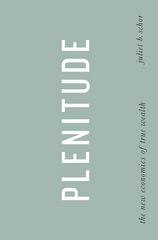Question
Which of the following statements is correct?: Question 1 options: Integrity is a shared asset that brings financial and economic rewards in the long-term All
Which of the following statements is correct?:
Question 1 options:
Integrity is a shared asset that brings financial and economic rewards in the long-term | |
All of the above | |
The real value of integrity is not personal; it is collective | |
Integrity can be defined in terms of adherence to moral principles, rectitude, honour and honesty |
Question 2 (0.33 points)
Saved
List the key elements necessary in a robust Integrity system
Question 2 options:
All of the above | |
Long term thinking &Feedback loop | |
Simple, clear, straightforward, and intuitive rules and accountability | |
Disclosure and Information and transparency |
Question 3 (0.33 points)
A market situation where buyers and sellers have different information, so that a participant might participate selectively in trades which benefit them the most, at the expense of the other party, is a:
Question 3 options:
Asymmetric Information. | |
Prisoners' Dilemma. | |
Moral Hazard. | |
Adverse Selection. |
Question 4 (0.34 points)
If your car is not insured, you will take great care to avoid it getting stolen. You will lock it carefully. However, if it becomes insured for its full value then if it gets stolen you do not really lose out. Therefore, you have less incentive to protect against theft. What is the social dilemma here:
Question 4 options:
Adverse selection. | |
Common Resources. | |
All of the above. | |
Moral Hazard. |
Question 5 (0.34 points)
A company's management might be aware that they are selling shares for more than they are actually worth, and take advantage of this asymmetrical access to information. Without the same level of knowledge, buyers may purchase the overpriced shares. What is the social dilemma here:
Question 5 options:
All of the above | |
Public Good | |
Adverse Selection | |
Moral hazard |
Question 6 (0.33 points)
The Pareto Criteria states that:
Question 6 options:
Society should only move away from perfect equality when the worst-off person would be better-off under inequality, relative to equality. | |
The sum of their utilities is an appropriate measure of social welfare. | |
If at least one person is better off and no one is worse off, then we should prefer that allocation. | |
None of the above |
Question 7 (0.34 points)
To opt for the state that maximizes the utility of the person in the worst position, or to maximize the minimum utility follows the:
Question 7 options:
Rawls Criteria. | |
Common happiness and social wellbeing. | |
Utility maximisation for rational individuals. | |
Pareto Criterion. |
Question 8 (0.33 points)
The Easterlin Paradox states that:
Question 8 options:
Happiness is based on relative rather than absolute income. | |
Despite increases in personal income over time, people were not reporting an increasing level of happiness. | |
If happiness and income are compared at any point in time, those with more income are, on average, happier than those with less. | |
Happiness adapts to changes in the level of income. |
Question 9 (0.34 points)
Real GDP per capita:
Question 9 options:
Is a measure of the total goods and services produced in a country (calledgross domestic product, orGDP), which is then divided by the country's population | |
Is GDP per capita considering international prices and purchasing power across countries. | |
All of the above | |
Is GDP per capita taking account of price changes over time |
Question 10 (0.33 points)
Popular measures of wellbeing are:
Question 10 options:
GDP per capita | |
GNH | |
HDI | |
All of the Above |
Step by Step Solution
There are 3 Steps involved in it
Step: 1

Get Instant Access to Expert-Tailored Solutions
See step-by-step solutions with expert insights and AI powered tools for academic success
Step: 2

Step: 3

Ace Your Homework with AI
Get the answers you need in no time with our AI-driven, step-by-step assistance
Get Started


